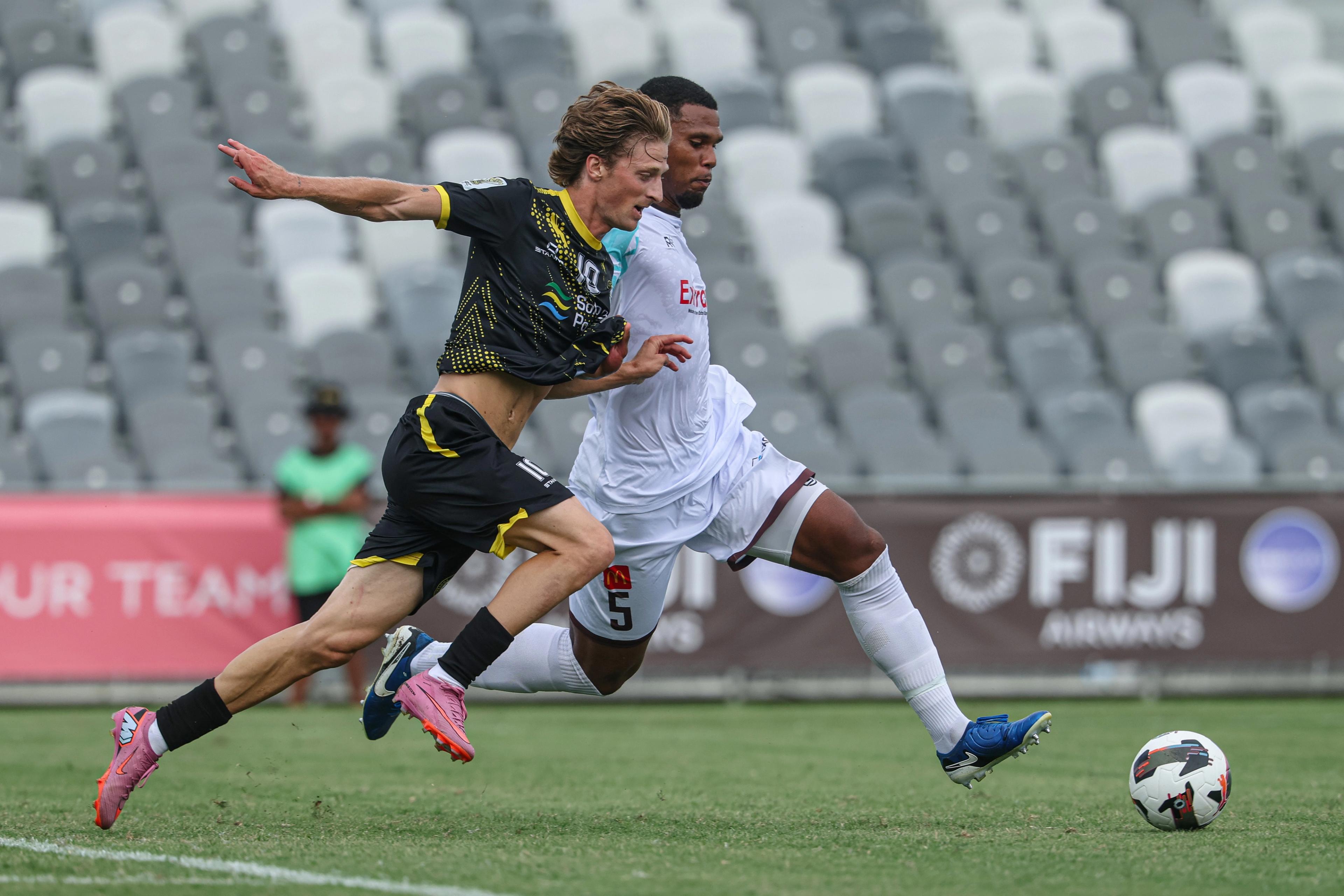

Union Calédonienne members of the FLNKS Executive, one of the key parties during earlier talks with the French government.
Photo/LNC
Paris summit discusses New Caledonia's future amid calls for self-rule
Held in the wake of last year's unrest and protests, the meeting aims to address critical political, economic, and social issues for the French territory.


Election year creates headaches for NZ schools - principal

Pacific DNA research could change how diabetes and obesity are medicated



Election year creates headaches for NZ schools - principal

Pacific DNA research could change how diabetes and obesity are medicated

French President Emmanuel Macron has brought together leaders from New Caledonia for a meeting to talk about the territory's future.
The recent Paris summit comes a year after serious riots shook the region.
New Caledonia is a French territory located in the South Pacific and has been under French control since the 1800s.
Over the years, there has been growing tension, especially among the Indigenous Kanak people, who want more independence or complete freedom from France.
In May 2024, protests erupted in the capital city of Nouméa after Macron announced plans to change the election laws. The changes would give more voting power to new arrivals from France, which angered the Kanak people, who make up about 41 per cent of the population.
They felt that the electoral reforms would weaken their political voice and threaten their long-standing dreams of independence. The unrest led to the deaths of 13 people, mostly Kanaks, along with injuries to hundreds and nearly 3000 arrests.
French media reports that Macron has unveiled a range of options for New Caledonia's future political status, including an "associated State" with a "strong link with France". Other options include a status quo or a "large autonomy".
But the options are reportedly tied to a necessary "reconstruction and refoundation period of 15 to 20 years" to rebuild New Caledonia's economic and social fabric, which has been severely damaged following last year's unrest.
At the beginning of this year, the New Caledonian government estimated that repairing the damage caused by the riots would cost millions.
The Paris Summit aims to address ongoing issues related to the Kanak people's calls for greater autonomy, as well as concerns in politics, the economy, and society.
Macron has stated that discussions at the summit will continue "as long as necessary" to address these important topics.
The Paris meeting also follows the release of New Caledonian pro-independence leader Christian Tein, who had been detained in eastern France since June 2024 in connection with the unrest. He was released due to a lack of evidence over allegations that he was planning a violent uprising in the French territory.
The last vote on whether New Caledonia should become independent was held in 2021, but pro-independence groups boycotted it because the Covid-19 pandemic had heavily impacted the Kanak community.
It was the third referendum since 2018, and all three times, the majority of voters chose to remain part of France.

Tourism officials in New Caledonia say that since last year's civil unrest, the economic and social recovery have been "slow but steady". Photo/New Caledonia Tourism
Meanwhile, New Caledonia’s tourism industry is gradually recovering. According to Statistics New Caledonia, tourism numbers dropped by 53 per cent in 2024 compared to the previous year.
Since last year’s unrest, the tourism industry has been focussing on attracting visitors from New Zealand and Australia, with a noted increase in interest, particularly since the easing of Aotearoa’s travel advisory in May this year.
Despite this optimism, officials say recovery is slow due to ongoing economic and political challenges.